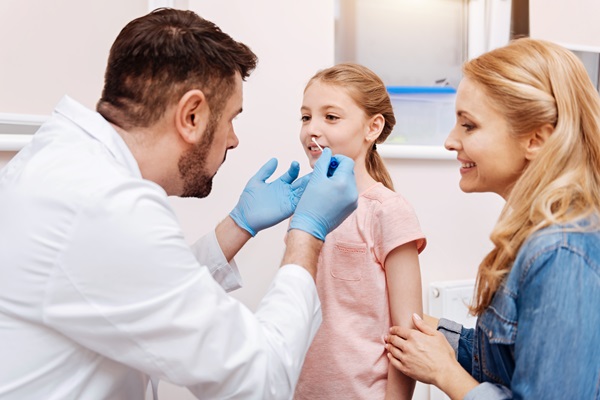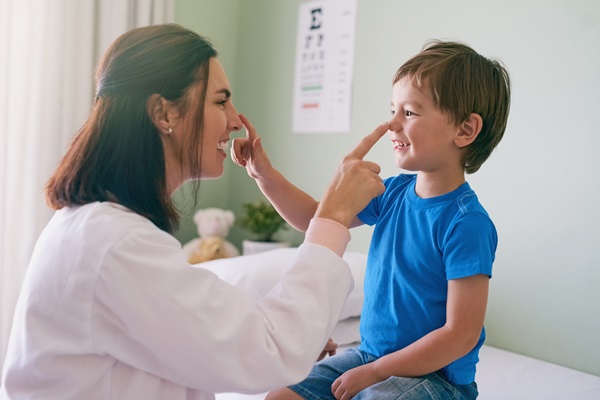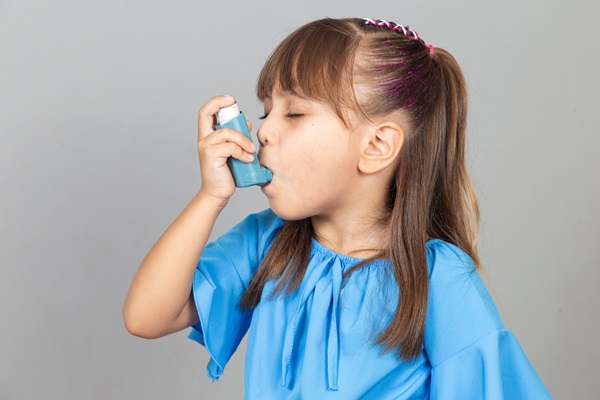Adolescent CareZachary, LA
Adolescent care is a branch of pediatric medicine that focuses on the unique physical, emotional, and psychological needs of individuals transitioning from childhood to adulthood. This stage of a young person's life is characterized by physical growth, self-discovery, and an increased need for independence. Adolescents often face unique challenges, such as mental health issues, sexual development, and the onset of chronic health conditions.
At TKZ Pediatrics, we understand this is a difficult time for teens and their parents. Our team provides adolescent care in Zachary and the surrounding area to support our young patients' ongoing health and development needs. Call us at 1-225-420-1549 to learn more about our services or schedule an appointment.
What is Adolescent Care?
Adolescent care focuses on patients between 10-21 years of age. While this branch of medicine overlaps with pediatric care, adolescent care emphasizes comprehensive treatment tailored to the unique developmental needs of teenagers and young adults. This care may include addressing mental and physical health issues, lifestyle changes, and providing guidance on the young person’s life decisions.
During adolescence, young individuals undergo puberty, experience rapid growth, and develop a deeper sense of self-identity. Proper medical care during this time ensures that they have a strong support system in navigating these changes in a healthy way. Without adequate guidance, adolescents may face challenges such as poor mental health, eating disorders, or risky behaviors, which can all affect their long-term health and well-being.
Additionally, adolescence is a formative time when young people establish lifestyle habits. These habits often continue into their adulthood. Adolescent care providers give patients appropriate health education and care that can help reduce the risk of chronic diseases later in life, such as obesity, diabetes, and heart disease. Healthcare tailored to adolescents empowers them to make informed decisions about their bodies, mental health, and peer relationships.
“While this branch of medicine overlaps with pediatric care, adolescent care emphasizes comprehensive treatment tailored to the unique developmental needs of teenagers and young adults.”
The Stages of Adolescent Development
Adolescent development is commonly divided into three stages, which are early, middle, and late adolescence. Healthy Children, an online publication by the American Academy of Pediatrics, breaks these stages down further into physical, sexual, cognitive, social, and emotional changes. Understanding what to expect at different stages can help parents and adolescent care providers promote healthy development through a young person’s transition into early adulthood.
- Early adolescence (10-13):This stage marks the onset of puberty, leading to significant physical changes, including growth spurts, hair growth in new areas, and sexual maturation. Cognitive development begins to shift towards more black-and-white thinking, while social interactions become more complex as early adolescents start to seek independence from their parents while forming closer peer relationships.
- Middle adolescence (14-17):During this stage, adolescents experience further physical and emotional changes, often grappling with forming their own identity and self-esteem issues. Peer relationships become more influential, and young individuals begin to explore different roles and values from their parents, which can lead to experimentation with behaviors, beliefs, and relationships.
- Late adolescence (18-21):This stage involves a transition to adulthood, with a focus on establishing a clearer sense of identity and direction in life. It is common for adolescents to develop more serious romantic relationships, seek greater independence from their families, and make important decisions about education, career paths, and values while further developing cognitive and emotional maturity.
“Adolescent development is commonly divided into three stages, which are early, middle, and late adolescence.”
Adolescent vs. Pediatric Care
The primary difference between adolescent and pediatric care is their focus on the unique health needs of each age group. During the early years of a child's life, pediatric care focuses on preventive care, vaccinations, and managing common childhood illnesses. This stage emphasizes physical growth and development. Pediatricians work closely with the child's parents or guardians in decisions about their health, as young children are usually unable to communicate their health needs or concerns.
In contrast, adolescent care recognizes the physical, emotional, and social changes between the ages of 10 and 21. This branch of medicine focuses on matters such as puberty, mental health, and substance abuse, all of which require a more nuanced approach. Dr. Woodroffe works with adolescent patients in a confidential setting to build a trusting relationship, encouraging them to take an active role in managing their health.
“The primary difference between adolescent and pediatric care is their focus on the unique health needs of each age group.”
Common Conditions Addressed in Adolescent Care
Patients of all ages in adolescence are susceptible to various health issues and conditions. However, as they begin to navigate into a more grown-up world, they are exposed to more health risks and conditions that may affect their long-term health and well-being. Common conditions include:
- Mental health disorders (e.g., anxiety, depression, eating disorders)
- Physical health issues (e.g., obesity, asthma, diabetes, and chronic pain)
- Reproductive health concerns (e.g., menstrual irregularities, STIs, teen pregnancy)
- Substance abuse disorders (e.g., alcohol, tobacco, and recreational drug use)
- Developmental concerns (e.g., behavioral problems, delayed puberty, stunted growth)
- Injuries and accidents (e.g., sports injuries or self-harm)
- Skin conditions (e.g., acne, eczema, or psoriasis)
- Chronic conditions (e.g., asthma, allergies, autoimmune disorders)
Adolescent care providers and parents can encourage healthy behaviors that help teenagers stay safe and healthy.
“Adolescent care providers and parents can encourage healthy behaviors that help teenagers stay safe and healthy.”
What to Expect During an Adolescent Care Visit
During an adolescent care visit, teenagers and parents can expect a comprehensive evaluation of the teen's physical, emotional, and mental health. The doctor will typically conduct a physical exam, assess growth and development, and inquire about the teen's lifestyle habits, such as diet, sleep schedule, and exercise. Additionally, this visit may include eye and hearing screenings.
It is also important for parents to prepare for confidential discussions about sensitive topics with their teenagers and the doctor, such as mental health, substance use, or sexual activity. Both teenagers and parents will also have the opportunity to ask questions and learn more about how to support healthy habits during adolescence.
Depending on their age and preferences, the patient may choose not to have their parent in the examination room at certain points or at all during their appointment. This usually begins when the teen is around 13 and begins to go through puberty. However, a parent or guardian’s presence may be appropriate in some situations, such as when a teen is having an embarrassing procedure or is uncomfortable talking to a doctor of the opposite sex.
Questions Answered on This Page
Q. What are the three stages of adolescence?
Q. What is the difference between adolescent and pediatric care?
Q. What common issues are addressed and in treated in adolescent care?
Q. What can my teen and I expect during their adolescent care visit?
Schedule an Appointment Today
Going through adolescence can be a difficult experience. You and your teen deserve a supportive healthcare team that provides a safe space as they grow and develop into young adults. We offer adolescent care in Zachary and the surrounding area to patients up to 19 years old. Call TMZ Pediatrics at 1-225-420-1549 to learn more about our services or to schedule an appointment.
Frequently Asked Questions About Adolescent Care
Q. How do I get my teen to eat healthier foods?
A. Encourage your teenager to eat healthier by involving them in meal planning and preparation. Make it a fun and educational activity. Offer a variety of healthy, tasty options and allow them to choose what they enjoy most. Emphasize balance over restricting eating less healthy foods like chips and ice cream. Finally, model healthy eating habits yourself, as teens are more likely to follow your example.
Q. What are the rules around privacy and confidentiality for adolescent patients?
A. The privacy and confidentiality of adolescents are generally respected, allowing them to communicate openly with healthcare providers. Parents and guardians are often involved in their teens' healthcare decisions. However, sensitive matters like sexual health or mental health may be kept confidential between the teen and the doctor unless deemed necessary for the patient's safety and well-being.
Q. When do teenagers typically go through puberty?
A. Puberty typically begins between the ages of 8 and 13 for females and 9 and 14 for males, although it varies from person to person. This process is triggered by hormones from the brain's adrenal glands. Some physical changes that occur during puberty include breast development, pubic and armpit hair growth, menstruation, voice changes, and growth spurts. During puberty, teenagers may experience hormonal-driven mood swings and intense emotions.
Q. How often will my child need checkups?
A. As children age into adolescence and become teenagers, they will need fewer appointments for vaccinations, and other check-ups. In many cases, they will shift into the common trend of visiting the doctor for a check-up at least once per year. Teenagers may also need a physical exam for joining a sports team or going out of the country.
Q. What vaccinations do teenagers need?
A. Teenagers typically need vaccines such as the Tdap (tetanus, diphtheria, and pertussis), meningococcal vaccines to protect against meningitis, and the HPV vaccine to prevent certain cancers. Annual flu shots are also recommended. Some teens may require additional vaccines based on travel, health conditions, or missed childhood vaccinations. If you have questions about your child’s vaccination schedule, reach out to our Zachary office.





